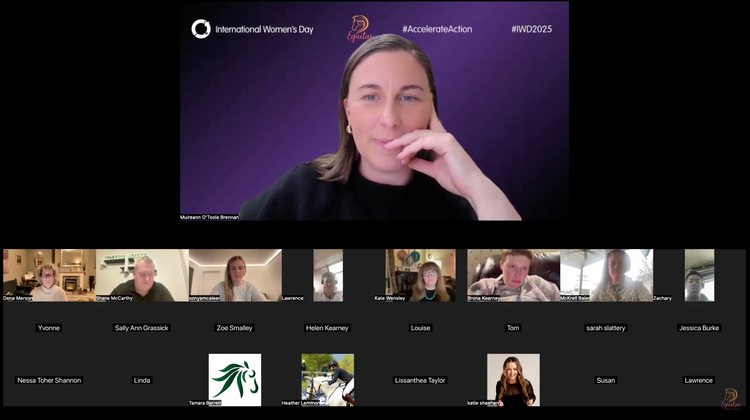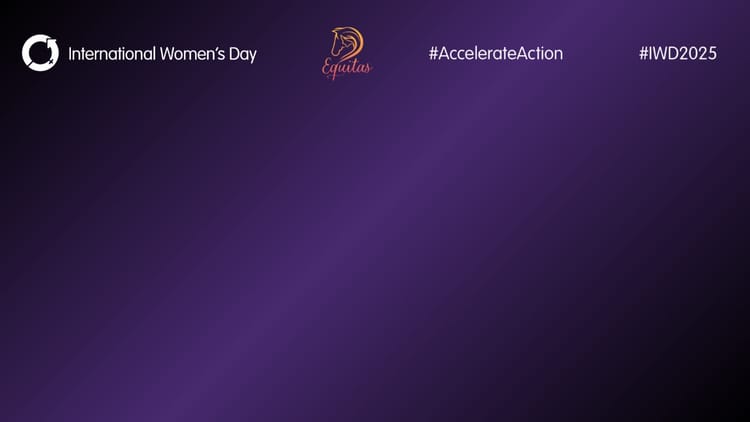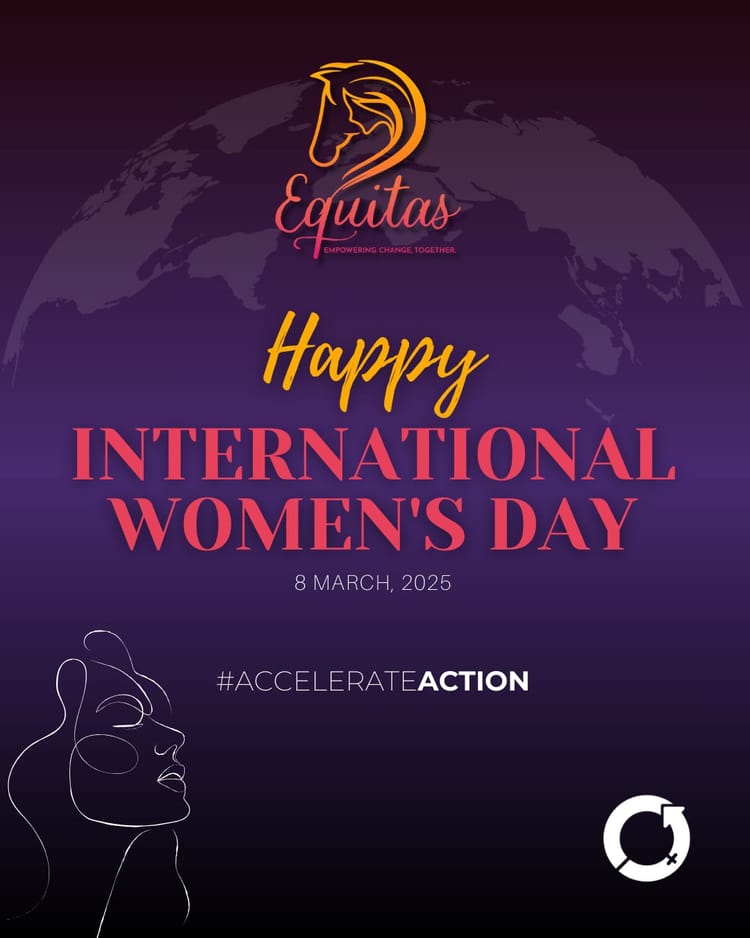Unveiling the Shadows – Addressing Abuse in Equestrian Sport

Why Silence is the Biggest Enabler of Sexual Abuse in the Sport
Equestrian sport is built on trust—between horse and rider, between coaches and athletes, between teams and federations. But what happens when that trust is broken? More importantly, what happens when the sport fails to protect the very people who make it possible?
For International Women’s Day, Equitas is opening up a conversation that has remained in the shadows for too long. Sexual abuse and misconduct in equestrian sport are not isolated incidents—they are systemic issues that have persisted in silence. The sport’s deeply ingrained structures of hierarchy and power have, at times, made it difficult for victims to come forward and for real accountability to take place.
This article explores why abuse has been allowed to continue, the barriers that prevent riders from speaking out, and how equestrianism can create a culture of safety, transparency, and accountability.
Because International Women’s Day is about more than just recognition—it’s about progress. And progress means ensuring that every rider, at every level, has the right to train, compete, and succeed in an environment free from fear.
A safer, stronger sport is possible—but only if we choose to build it.
Sexual abuse in equestrianism is real. It has happened at the highest levels. It is happening now. And it will keep happening unless the industry stops protecting its own at the expense of its most vulnerable.
The sport thrives on hierarchy. From the moment a young rider steps into a stable, they are taught discipline, obedience, and unwavering deference to authority. Coaches, trainers, and selectors hold immense power—not just over a rider’s development, but over their entire future in the sport. And that power? In some instances, it has been dangerously misused.
And that power? It has been abused.
For years, some of the most celebrated names in equestrianism—coaches, Olympians, selectors—used their positions to exploit trust and authority. Their victims were young, ambitious, and trapped in a system that was not equipped to prevent abuse or protect those at risk.
Some people knew. Some whispered. Some looked away. But very few spoke up. Because in a sport this insular, silence isn’t just expected—it’s enforced.
Well we have a voice and a platform here at Equitas and we plan on using it. We've been vocal about the origins fo Equitas. We've been transparent on what we will advocate on and why. We will not be silent... because when silence becomes the default, abusers flourish, and victims are abandoned.
The Men the Sport Protected
This isn’t about speculation. This isn’t about ‘allegations’. The truth has already been exposed. The names have already been revealed.
- George Morris. Olympic-level coach. Revered across the world. Banned for life in 2019 for sexually abusing minors.
- Rich Fellers. U.S. Olympian. Jailed in 2023 for sexually abusing his 17-year-old student.
- Jimmy Williams. One of the most powerful men in American equestrian sport. Abused young female riders for decades—and the industry covered for him.
These weren’t just random cases of misconduct. These were men who shaped the sport. They decided who got opportunities, who got sponsorships, who made it to the top. And they used that power to prey on young riders who trusted them.
Even worse? Many concerns were raised over the years, but the structure of the sport made it difficult to challenge those in power. When influential figures control access to success, speaking out can come at great personal and professional risk.
So victims stayed quiet. Parents stayed quiet. Coaches stayed quiet.
And the sport allowed it to continue.
Why Abuse Thrives in Equestrianism
Equestrian sport is uniquely vulnerable to abuse because of its deeply ingrained structures of power and silence.
🔴 The Power Dynamic is Absolute
Coaches and selectors hold immense control over a rider’s career. One recommendation, one phone call, one nod of approval can make or break an athlete. That level of power creates an environment where saying “no” to a coach isn’t just difficult—it feels impossible.
🔴 Silence is Rewarded, Speaking Out is Punished
Riders who report abuse face the very real risk of losing their place in the sport altogether. Opportunities dry up. Support disappears. Doors close. Meanwhile, the abuser continues on, protected by their status and the industry’s reluctance to deal with uncomfortable truths.
🔴 There have been instances where safeguarding measures were inadequate, allowing misconduct to persist unchecked.
For decades, governing bodies have struggled with safeguarding, with responses ranging from inconsistent to severely lacking. It could be said that too often, abusers weren’t banned, weren’t investigated, weren’t even publicly named—they were simply moved to another stable, another role, another federation.
And that’s what happens when reputation matters more than justice.
The Industry’s Response – SafeSport and the Fight for Accountability
In recent years, high-profile cases and survivor testimonies have forced the industry to respond. But is it enough?
The U.S. Center for SafeSport has been the most visible effort to address abuse in Olympic sports, including equestrianism. It has:
✔️ Banned high-profile abusers like George Morris and Jimmy Williams.
✔️ Created an independent body to investigate sexual misconduct cases.
✔️ Implemented mandatory SafeSport training for riders, coaches, and officials.
But the system is still flawed.
- Victims still hesitate to report abuse out of fear of career repercussions.
- Many governing bodies outside the U.S. have no equivalent safeguarding measures.
- Loopholes in international safeguarding systems have, at times, allowed banned individuals to resurface in different countries or under different roles.
Real protection doesn’t come from corporate policies or online training courses. It comes from a cultural shift—one where victims feel safe speaking out, and where there are actual consequences for abusers, no matter how powerful they are.
Because the reality is, SafeSport shouldn’t have been necessary in the first place.
No More Silence. No More Second Chances.
For decades, equestrian sport has prioritised reputation over reform, allowing serious issues to go unaddressed.
It has protected the reputations of abusive coaches instead of the safety of young riders.
It has protected institutions instead of the individuals who suffer inside them.
It has protected its image, even when that image was a lie.
Enough.
- If an abuser is reported, they should be immediately investigated—by an independent body, not their friends in the federation.
- If they are found guilty, they should be permanently banned from the sport. No appeals. No quiet retirements. No second chances.
- If a federation covers for them, it should be held legally accountable for enabling abuse.
This sport belongs to the riders, the grooms, the teams, the next generation. It does not belong to the men who have used it as a playground for unchecked power.
The greatest hypocrisy in equestrianism is that we demand absolute trust from our horses—but refuse to demand the same integrity from our leaders.
That has to change.
Not in five years. Not in ten years. Now.
Because if equestrian sport wants to survive, it must do more than train better riders.
It must become a safer place for them to exist.
Until next time,
Shane





